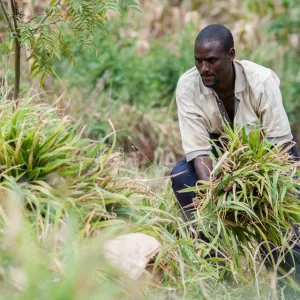Boosting livestock productivity and sustainability in East Africa: The role of forage seed systems
Livestock farming plays a critical role in the economies of East African countries, with millions of people depending on cattle, goats and sheep for food, income and employment. However, despite the region’s vast agricultural potential, livestock production faces a significant feed deficit – nearly 40% of the total ruminant feed demand is unmet annually. This challenge, compounded by climate

Boosting livestock productivity and sustainability in East Africa: The role of forage seed systems
Livestock farming plays a critical role in the economies of East African countries, with millions of people depending on cattle, goats and sheep for food, income and employment. However, despite the region’s vast agricultural potential, livestock production faces a significant feed deficit – nearly 40% of the total ruminant feed demand is unmet annually. This challenge, compounded by climate change, is limiting the region’s ability to maximize livestock productivity. Addressing this feed shortage is essential for improving food security, rural livelihoods and environmental sustainability.
A recent study by Burkart and Mwendia from the Alliance of Bioversity International and CIAT delves into the pressing need to improve access to quality forage seeds in East Africa. The research highlights that many farmers rely on outdated, low-quality seeds, limiting the potential for cultivating the high-yielding, nutrient-rich forages that are necessary to close the feed gap.

